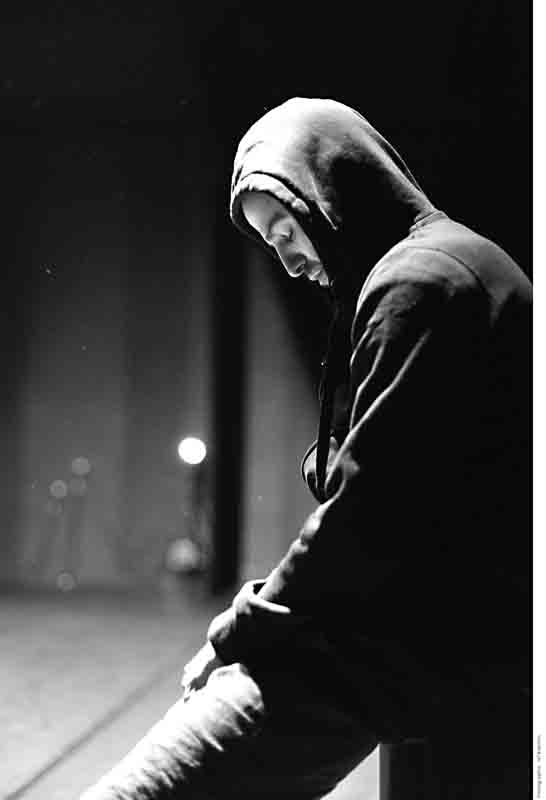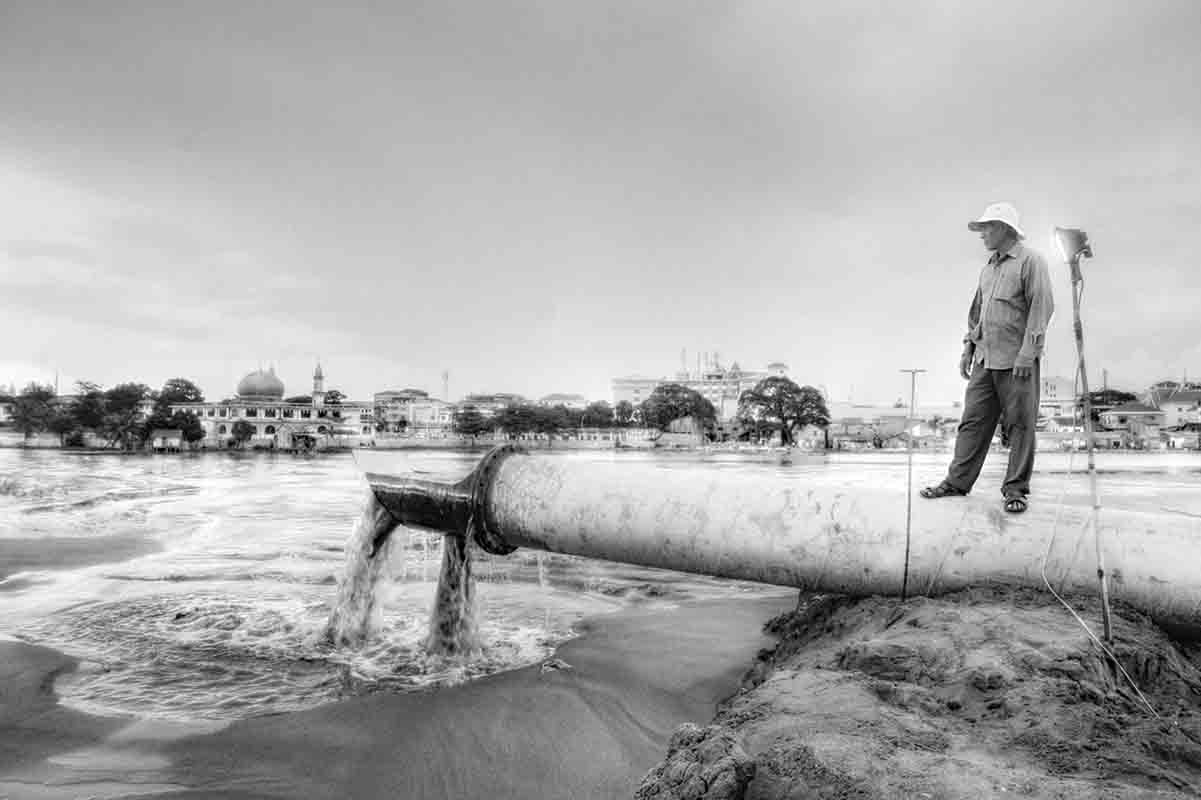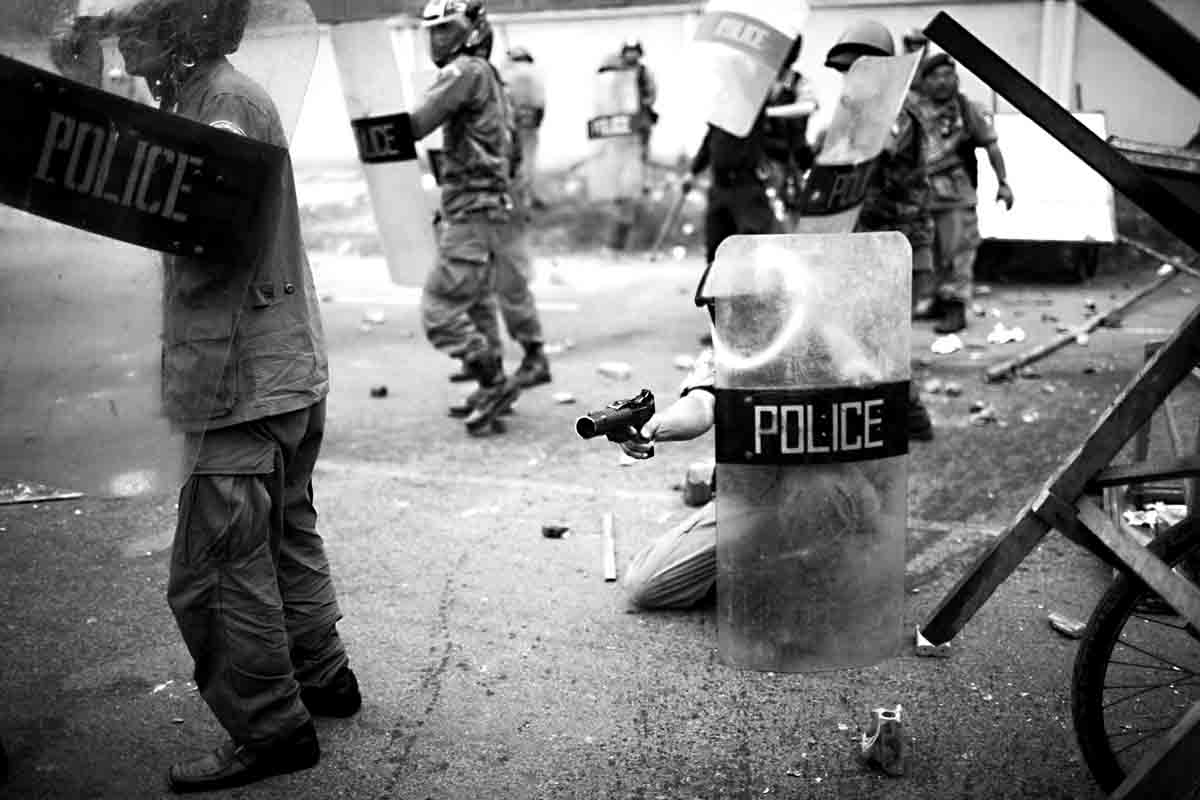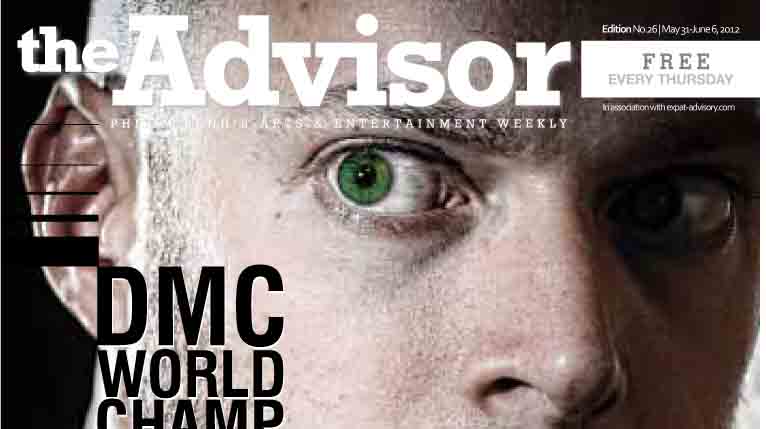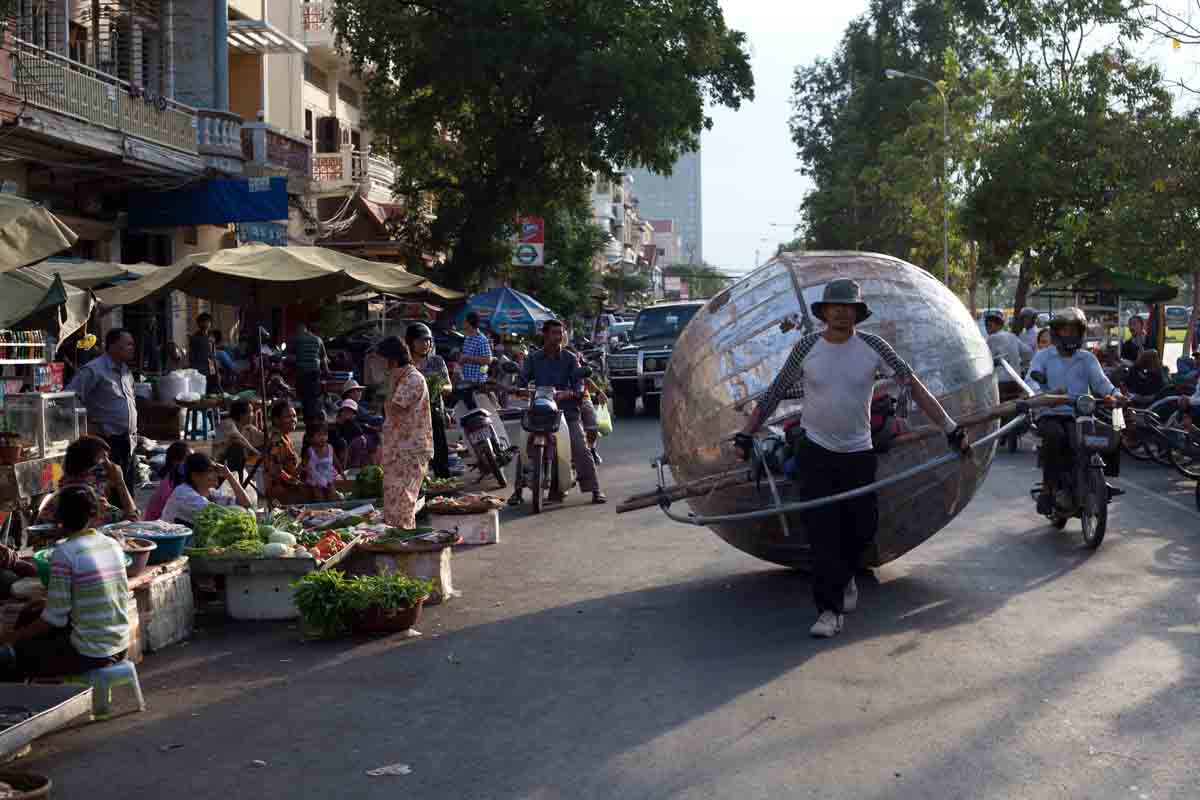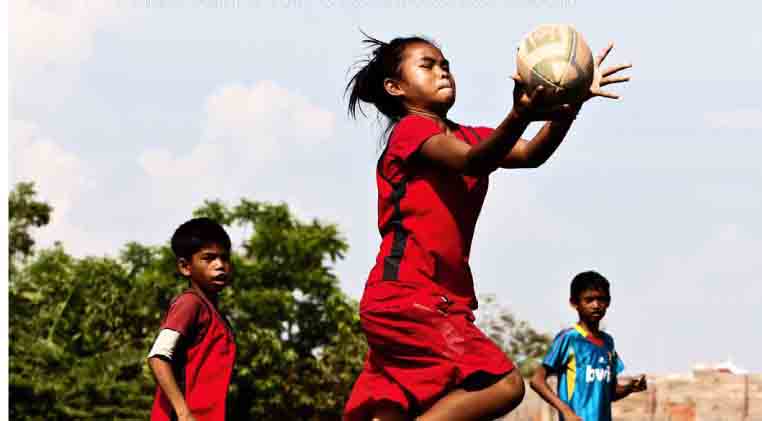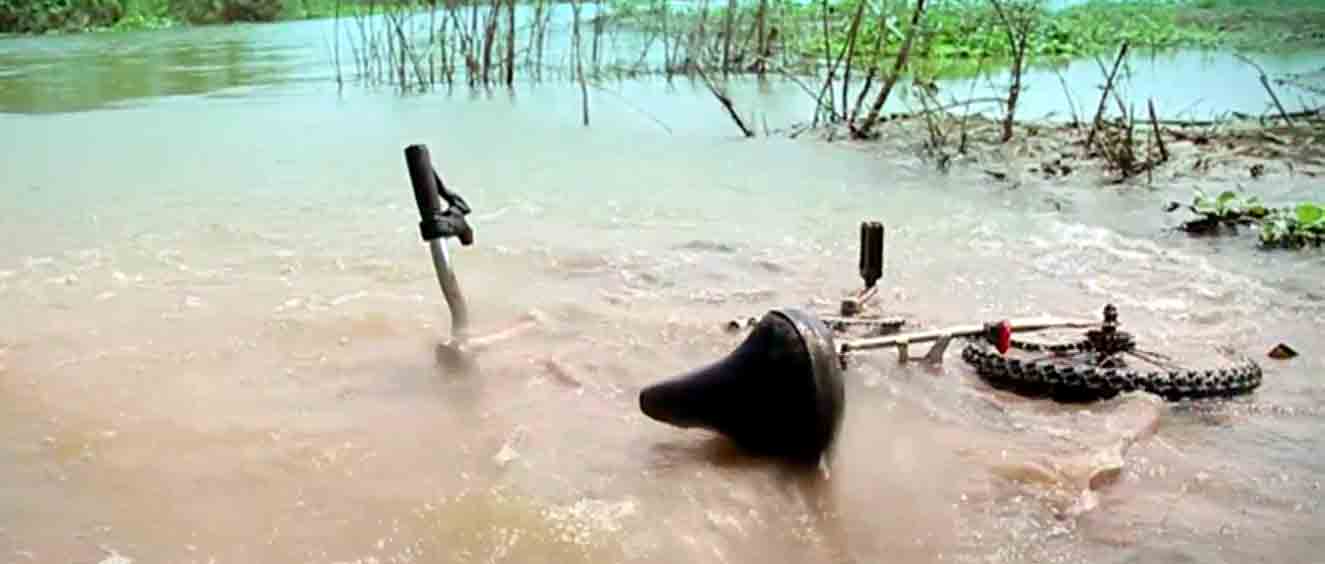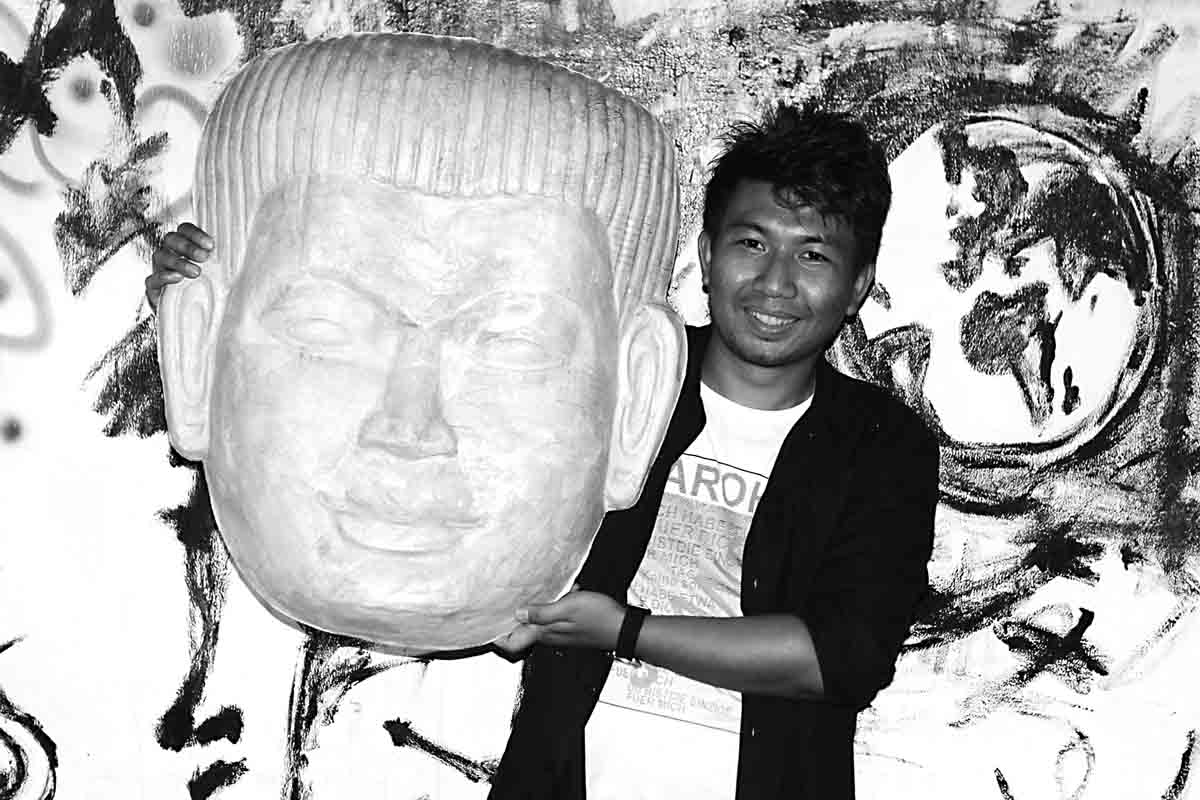The stage is black. A distant tinkling is the only sound, resembling nothing so much as crockery clinking against crockery. The lights go up slowly. Crockery: a heaped morass of over 1,000 coffee cups slithering upstage seemingly with a mind of its own. Then, to the accompaniment of stark chords on an electric guitar, a hooded man emerges from the cup mountain and crawls face down towards the audience. Strange, surreal, sexy – it’s contemporary dance, but not as we know it. This is Kawa (‘coffee’ in Arabic), a performance exploring creative angst and the Arab Spring through the metaphor of everyone’s favourite morning beverage.
“We wanted to transfer the idea of making an espresso to our own situation as artists,” explains Hafiz Dhaou, co-choreographer of Chatha Dance Company by day, dancer crushed beneath coffee cups by night. Both the coffee-making and the creative process, according to Dhaou, involve the compression of a base product, be it coffee grains or personal experience, and the extraction of a palatable product. Performance, art, espresso, “it’s all about some form of pressure.”
Dhaou and his partner (in choreography and in life) Aicha M’Barek know something about the pressures brought to bear on today’s transcultural artists. Since founding Chatha in 2005 they have performed worldwide, taking their challenging interpretation of dance to theatres far-flung from their homes in Lyon and Tunis. In 2011 they choreographed an ensemble piece for the Ballet de Lorraine, France; 12 months later they are bringing Kawa, their one man show, to Phnom Penh. The Tunisian team does not shy away from pressure, apparently.
Kawa explores the effect of this pressure on the artist through its expressionist choreography. The piece “explores the body’s possibilities for generating movement without relying on established forms of dance”, creating an alternative gestural lexicon of movement. Dhaou spends most of the performance spinning skittishly in circles, orbiting the stage with hands clamped over his ears, or standing with his back to the audience. Such dramaturgical techniques smack of Bertolt Brecht’s political theatre, throwing out the traditional semiological system and forcing observers to engage critically in an attempt to understand the strange phenomenon unfolding on stage.
These Brechtian shadows imply a deeper layer of meaning to Kawa. As Dhaou shakes and shrugs between the coffee cups, a recording of Mahmoud Darwich, exiled Palestinian writer and member of the Palestinian Liberation Organisation, recites a poetic paean to coffee. As the poem makes way for melancholy electronica the dancer’s movements become spasmodic, as if he were being rent by polar forces; he resembles a man internally at war, although the reasons for this conflict are difficult for the observer’s naked eye to determine. Dhaou arranges the coffee cups strategically around the stage, constricting and demarking the once open space. As he places each cup carefully in position, he locates them as on a map – Beirut, Tripoli, Amman. The contrast between the meticulous placing of the cups and Dhaou’s body in constant flux creates a tension of immiscible forces contained within the same constricted space.
Although Dhaou and M’Barek are reluctant to describe their choreography as “political”, an audience faced with a Tunisian dancer writhing to the rhythm of a Palestinian poem inevitably reaches for wider meaning. At a recent festival in Berlin, Dhaou rejected the role of spokesman for the internecine strife sweeping across the Arab world, steering the conversation towards the question of the artist in society. But it’s hard not to see Kawa as both an expression of internal conflict and current political upheaval: the body as metaphor for nation state, united in form but continually in flux, searching for a way to balance conflicting forces while maintaining its original identity. Kawa is substantially deeper than your average cup of espresso.
WHO: Chatha Dance Company
WHAT: Kawa, solo contemporary dance
WHERE: Chenla Theatre
WHEN: 7pm June 8
WHY: Dancing up a storm in a coffee cup
